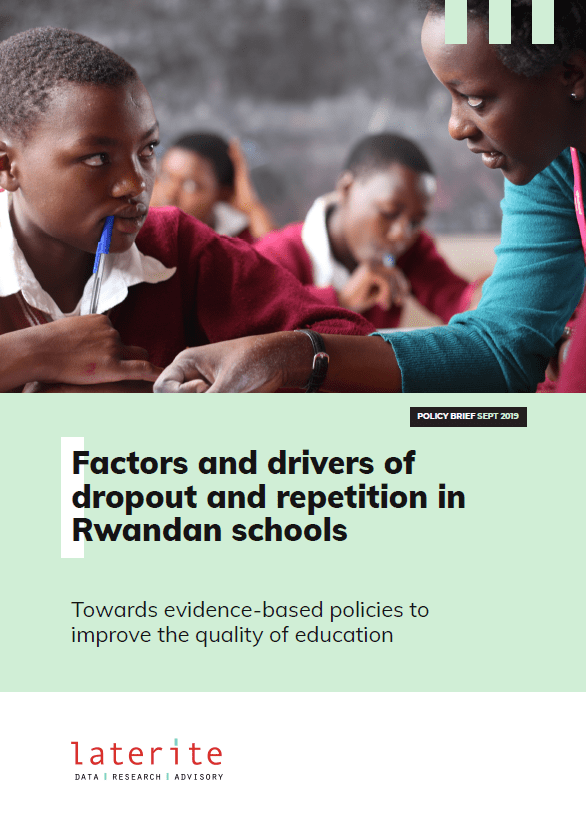Laterite’s policy brief on dropout and repetition
Laterite, UNICEF and the Ministry of Education (MINEDUC) conducted a survey across Rwanda to assess what drives dropout and repetition in schools. The study reached 8,000 children aged 6 to 18, and interviewed members of their households, schools and communities.
Laterite’s policy brief summarizes the findings of this study and outlines the key drivers of dropout and repetition in Rwandan schools.
The findings will inform the development of evidence-based policy to increase retention, completion and the overall efficiency of the education system.
Patterns in dropout and repetition in Rwanda
The study found that repetition affects mostly younger children entering the education system. On the other hand, dropout affects older children, increasing with each grade. We see that dropout is closely related to students’ age, with a late start a key predictor of future dropout.
We also see that children from wealthier households are more likely to stay on track. This is due to the increase in non-tuition related education expenses (e.g., transportation costs, uniforms) as students get older, and the increased opportunity cost of being in school.
This work was carried out in collaboration with the Ministry of Education and was funded by UNICEF. The full report Understanding dropout and repetition in Rwanda is available online.

